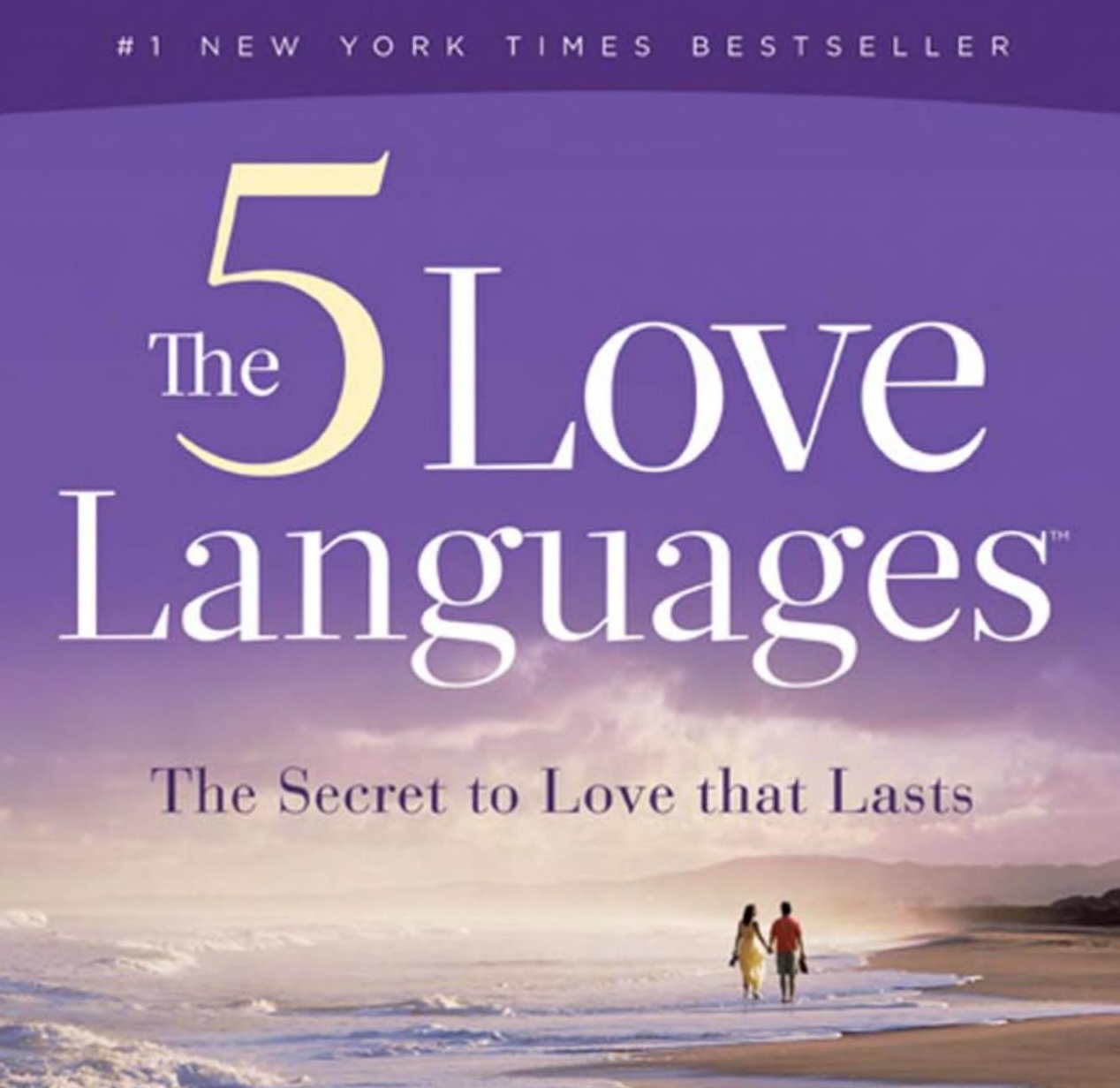Sharing is caring!
Summary of “The Five Love Languages” by Gary Chapman from an Emotionally Focused Therapy (EFT) Perspective
Overview of the Book: “The Five Love Languages” by Gary Chapman is a popular self-help book that explores the idea that individuals express and experience love in different ways. Chapman identifies five “love languages” through which people give and receive love: Words of Affirmation, Acts of Service, Receiving Gifts, Quality Time, and Physical Touch. He suggests that understanding your partner’s primary love language and using it to express love can improve relationship satisfaction and emotional connection.
Core Concepts:
- The Five Love Languages:
- Words of Affirmation: Expressing love through verbal compliments, words of appreciation, and affirming statements.
- Acts of Service: Demonstrating love by doing helpful things for your partner, such as chores or favours.
- Receiving Gifts: Giving thoughtful gifts as a symbol of love and appreciation.
- Quality Time: Spending meaningful time together, giving your partner undivided attention.
- Physical Touch: Expressing love through physical contact, such as hugging, holding hands, or other forms of affection.
- The Central Idea:
- Chapman posits that understanding and speaking your partner’s love language is key to building a stronger emotional connection and resolving conflicts in relationships. He emphasises that couples often miscommunicate or feel unloved because they are not expressing love in the language their partner understands best.
From an Emotionally Focused Therapy (EFT) Perspective:
- Emotional Connection Beyond Behaviours:
- EFT and Emotional Needs: While “The Five Love Languages” offers practical tips for expressing love, EFT goes deeper by focusing on the underlying emotional needs and attachment patterns that drive these behaviours. EFT posits that a secure emotional bond is the foundation of a healthy relationship, and while expressing love in your partner’s love language can be helpful, it might not be sufficient if deeper emotional issues or attachment wounds are present.
- Overwhelm and Disconnection:
- EFT’s Approach in Times of Distress: The strategies in “The Five Love Languages” may be less effective when couples are overwhelmed by negative emotions, unresolved conflicts, or attachment insecurities. When couples are caught in a negative interaction cycle or feeling disconnected, simply performing acts of service or giving words of affirmation may not address the root cause of their distress. EFT recognises that in such situations, couples need more than just a checklist of loving behaviours—they need to feel emotionally safe, understood, and connected.
- The Limitations of a Behavioural Approach:
- EFT vs. Behavioural Strategies: Chapman’s love languages offer a helpful framework for improving daily interactions, but they can sometimes be too simplistic to address the complexities of emotional regulation and attachment needs. EFT provides a more encompassing framework by helping couples explore their emotions, understand their attachment needs, and co-regulate each other’s emotions. This leads to a deeper and more consistent connection, beyond just fulfilling a love language.
- The Importance of Co-Regulation:
- EFT and Emotional Co-Regulation: EFT emphasises the importance of co-regulation—where partners help each other manage emotions, especially during times of distress. In contrast, “The Five Love Languages” tends to focus on individual actions that might not always foster the level of emotional attunement necessary for a secure bond. EFT helps couples navigate through their emotional landscapes together, ensuring that both partners feel supported and understood in a way that strengthens their attachment.
- Creating Lasting Change:
- EFT’s Focus on Attachment and Long-Term Connection: While speaking each other’s love language can certainly enhance a relationship, EFT aims for a more comprehensive and lasting change by addressing the emotional and attachment issues at the core of relationship distress. By helping couples build a secure emotional bond, EFT ensures that the love languages naturally flow from a place of deep connection and understanding, rather than being seen as a set of tasks to check off a list.
Conclusion:
“The Five Love Languages” provides a useful tool for understanding how to express love in a way that resonates with your partner. However, from an EFT perspective, the book’s behavioural approach might fall short in addressing deeper emotional issues, particularly when couples are overwhelmed by conflict or disconnection. EFT offers a more encompassing framework that focuses on the emotional needs and attachment patterns underlying relationship dynamics. By helping couples build a secure emotional bond, EFT fosters a lasting sense of connection and co-regulation, ensuring that love is not just expressed through words or actions but felt deeply and consistently by both partners.
Testimonials
"Thanks, Aaron, we could feel the benefits of each couple counselling session, even in our first session. We had done lots of work with different psychologists individually and as a couple prior to our first session, but the work with you feels deeper and different, in a good way. Just by helping us to slow down during the session makes us more aware of our primary emotions."

“Aaron is a truly talented psychotherapist and relationship counsellor who cares deeply for his clients. I recommend his services without hesitation. Thanks for taking our marriage from ‘good’ to ‘amazing’ Aaron, we are forever grateful!”

“My husband and I were very fortunate to see you … You (without a doubt in my mind) saved our marriage. Everything is wonderful currently … Eternally grateful. I truly mean every word. Very grateful to you”

"Aaron was very straight forward and honest. Clear about the approach and consistent in helping us change our patterns. The greatest accomplishment through this counselling process is connecting with my partner on an emotional level."

"I couldn't find the words ... Thank you so much for helping us throughout my family problem and obstacles ... not just our marital problems but more particularly to my son ... you're such a truly blessing to him."

"What we gain through the couple counselling process with Alive Counselling was greater insights into family of origins and the sources of [our] emotional pain. Stronger connection to partner."

“Thank you for the difference you’ve made to the life of our family. We are so blessed to have found you.”

"Aaron helped my partner and I reconnect. Not only with each other but within ourselves. Really listening to each other and not just 'doing the angry, dysfunctional dance'. We received lots of practical tips to manage in times of stress."

"Aaron is very patient and level headed ... What we gain through the couple counselling process with Alive Counselling was better awareness of the emotional cycle and triggers with my partner. What was most helpful about the counselling process was slowing the emotional reaction down to get to a calmer position ."

"The greatest accomplishment through this couple counselling process, was developing emotional vulnerability and being celebrated for that. What I like about Aaron is his excellent construction of a safe environment. Very educational process."

“[My partner] and I are doing well. We continue to use your strategies to slow things down ... We have also recommended you to friends of ours.”

“We used to think the ’honeymoon phase’ is just the early experience of a relationship that will end, and did not realise it is possible to feel the same ‘honeymoon’ experience again. Through the counselling process, we are so excited that we can connect deeply like we did early in our relationship.”

“[What I gain from the counselling process with Alive Counselling] It reminded me that there is a reason for everyone’s behaviour and to be more conscious and empathetic of that.”

“[The most helpful part of the counselling process] Insight to where a lot of my characteristics come from and why. Being reminded of what the basic needs of every human is.”

“[What I like about the way my counsellor works] Was able to bring out a lot of things about myself that I hadn’t realised. I did find counselling helpful and I thank Aaron for his time and advice.”

“[The benefits or changes I noticed in myself] Being able to label emotions and address them in the moment and being more mindful of my partners emotions.”







